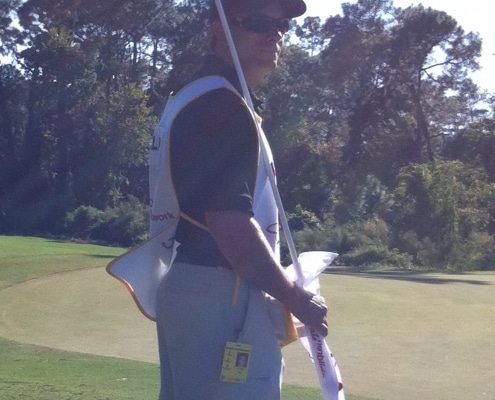5 Things I Hate About Myself
Life is not a garden. We can’t pull out the weeds and leave all the nice flowers.
Our mentality and identity doesn’t work like that. Instead, we have to recognize our defaults of character and make peace with them. Striving to slowly improve upon them and allowing others to help us in this process.
Growth is about progress, not perfection.
The tough part is that you can’t spell GROWTH without OW!
-
Perfectionism
I graduated with my Bachelor of Science degree and moved to Crested Butte, Colorado to be a ski-bum for one season. I skied 100 days that season!
Well, the employment opportunities were not in high demand, so I was forced to work construction. I sucked at it.
I became the laborer of the group, because I could hardly nail two pieces of wood together. Seriously, that bad.
To this day, I “hate” being bad at anything and can’t accept the fact that I am not GREAT at everything.
My daughter told me once, “dad, you’re great at everything!” I politely corrected her and said ” I’m good at most everything, but not great!”
2. All or Nothing thinking:
My mentality: win or lose, make the shot or miss it, do a good job or a poor job.
This type of stinking thinking has gotten me into trouble.
It means the good times are good, but the bad times are bad, and there are few times of being in the middle. Mental Toughness means that there HAS to be adversity! It matters how bad are the bad days!
The problem is that when I think in all or nothing terms; I allow no room for making mistakes or learning the lesson.
However, since we all are going to lose more often than we will win, a big part of mental toughness is learning how to deal with loss and failure. It’s one of the things I hate about myself, because it means living in the middle, the gray area of life!
3. Negativity:
Coach John Calipari said once that he can bring the intensity to practice 3 out of 5 days, but he needs his players and other coaches to bring the enthusiasm the other days.
I am the same way. I need others!
One of the things that I coach is the power of attitude and belief, and I still struggle with it. I can sometimes catch myself when driving to negative town, but it is still one place that I hate to go, since it serves little purpose.
No one goes to a pity party, except for you!
4. Tunnel vision:
Everyone’s greatest strength is also his or her greatest weakness.
Mine happens to be my obsession with mental toughness, sport psychology, and improvement.
If I set a particular goal, I will achieve it, period. It was how I turned myself around from being a loser!
However, there is a level of selfishness with this pursuit. For example, I’ve written seven books on Mental Toughness, ran 2 marathons, Ironmans, and Ultras, and had a hole-in-one.
So, other pursuits in my life have to drop off in order for me to remain steadfast on the people and things that are really important. It’s one of the things I hate about myself because I don’t like the feeling of being selfish.
Although, the tunnel vision is productive in the short-term, balance is better.
5. My Unbelief:
There is a verse in the bible, Mark 9:24.
It’s the verse I sign all of my books with.
It is a man talking to Jesus, who says “lord I believe, help my unbelief.”
This sums me up. I believe in my faith and salvation and know that things happen for a reason and that things also work out.
However, when I get stressed or fearful, it means I am not practicing my belief. The most important mental skill is confidence, and faith is all about trust.
When I don’t trust it, I don’t believe.
I know the skills and the things to do, but I can’t coach myself, I wish I could. Maybe that is one of the things I hate about myself as well! I’m not sure I’m ready to include that into my keynote speaking events yet.
 Dr. Rob Bell is a Sport Psychology Coach. DRB & associates coach executives and professional athletes. Some clients have included three different winners on the PGA Tour, Indy Eleven, University of Notre Dame, Marriott, and Walgreens.
Dr. Rob Bell is a Sport Psychology Coach. DRB & associates coach executives and professional athletes. Some clients have included three different winners on the PGA Tour, Indy Eleven, University of Notre Dame, Marriott, and Walgreens.
- Check Out All The Books
- Keynote Speaking On Mental Toughness
- Mental Toughness Podcast as we interview expert athletes and coaches about Mental Strength and their Hinge Moment.
- New Mental Wellness Blog Posts are published weekly.
- Follow on Twitter @drrobbell
- Follow on Instagram @drrobbell





